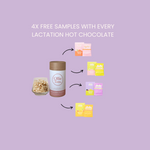Electrolytes—minerals such as sodium, potassium, magnesium, and calcium—are essential for fluid balance, nerve signaling, and muscle function. They help regulate hydration, blood pressure, muscle contractions, and even cellular communication throughout the body. When one’s electrolyte balance is off, it can affect everything from energy levels to digestion.
How pregnancy increases fluid needs and nutrient demands
During pregnancy, a woman’s blood volume increases by nearly 50% to support the growing fetus and placenta. This requires more fluid and more electrolytes to maintain healthy balance. Hormonal shifts and the increased workload on the kidneys also raise the body’s demand for these vital nutrients.
Electrolyte imbalances and their effects on maternal and fetal health
Low or high electrolyte levels can lead to complications such as dehydration, cramps, irregular heartbeat, hypertension, or edema (swelling). Severe imbalances may interfere with fetal development or trigger preterm labor. Maintaining steady electrolyte intake is key to reducing these risks.
Sodium: Supporting Blood Volume and Hydration
Role of sodium in maintaining blood pressure and fluid balance
Sodium helps control extracellular fluid levels and supports blood pressure stability. During pregnancy, adequate sodium ensures that increased blood volume stays within healthy limits, supporting circulation to both mother and baby.
Is too much or too little sodium dangerous during pregnancy?
While too little sodium can lead to dizziness, fatigue, and low blood pressure, excessive sodium may contribute to fluid retention, swelling, and elevated blood pressure. The goal is to strike a balance—avoiding extremes while meeting increased needs.
Balancing sodium intake through diet and safe supplementation
Whole-food sources like lightly salted broths, pickled vegetables, and minimal seasoning can help maintain sodium without overloading. In some cases, doctors may recommend a moderate sodium increase—particularly for those struggling with low blood pressure or excessive leg cramps.
Potassium: Regulating Muscle Function and Preventing Cramps
Potassium’s role in nerve signals and muscle contractions
Potassium works alongside sodium to conduct nerve impulses and trigger muscle contractions. It is especially important for relief of muscle cramps and ensuring regular heart function.
Why low potassium may cause fatigue or muscle cramps
Low potassium can lead to fatigue, irregular heartbeats, and frequent cramps—particularly in the legs. Because pregnant bodies are under more physical stress, potassium needs tend to rise and symptoms can become more pronounced.
Potassium-rich foods and supplements during pregnancy
Bananas, oranges, sweet potatoes, beans, and leafy greens are excellent dietary sources. A balanced prenatal supplement may include potassium—but when cramps or fatigue persist, targeted potassium hydration drinks or gentle supplementation may help restore balance.
Magnesium: Reducing Stress, Preventing Constipation and Cramps
Magnesium’s role in muscle relaxation and blood sugar control
Magnesium supports smooth muscle relaxation, including in blood vessels and the digestive tract. It also helps regulate blood sugar and supports calming neurotransmitters, which are especially useful for stress management in pregnancy.
Benefits of magnesium for sleep, stress, and bowel regulation
Many expectant mothers find magnesium helpful for improving sleep quality, reducing anxiety, relieving constipation, and preventing nighttime leg cramps. Its calming effects often support better overall tolerance of daily pregnancy challenges.
Safe sources of magnesium for pregnant women
Whole grains, nuts, seeds, and legumes are good dietary sources. Powdered electrolyte drinks containing magnesium can be gentle on digestion. Supplementing should always be discussed with your healthcare provider, especially in later trimesters or when GERD is an issue.
Hydration Balance and Morning Sickness
Why proper hydration is harder during pregnancy
Persistent nausea and vomiting, especially during the first trimester, can cause rapid fluid and electrolyte loss. Food aversions can also make it difficult to ingest sufficient nutrients and water at once.
Electrolyte-enhanced fluids vs. plain water
Plain water helps prevent dehydration—but electrolyte-enhanced drinks are more effective at replacing lost sodium, potassium, and magnesium. They also reduce the risk of hyponatremia (low blood sodium) following vomiting or excessive fluid intake.
Managing nausea and vomiting with electrolyte support
Small sips of lightly flavored electrolyte fluid throughout the day can help settle the stomach and keep hydration steady. Paired with ice chips or popsicles, these drinks support nutrient balance while minimizing nausea.
Electrolytes vs. Prenatal Supplements: What’s the Difference?
Do prenatal vitamins provide enough electrolytes?
Prenatal vitamins typically provide calcium, folic acid, iron, and vitamin D—while offering minimal sodium, potassium, or magnesium. Because pregnancy demands for electrolytes outpace vitamin coverage, targeted hydration strategies are still essential.
Why targeted hydration still matters
During hot weather, morning sickness, or high activity days, electrolytes help maintain fluid and nerve balance—supporting energy, muscle function, and circulation. Vitamins alone are not enough to prevent imbalance under these conditions.
Complementary roles of vitamins and electrolytes
Prenatal supplements and electrolyte support complement each other. Vitamins build foundational nutritional health, while electrolytes help with daily physiological balance and hydration. Both are integral—but distinct—tools in a sound pregnancy wellness strategy.
Signs You May Be Low in Electrolytes During Pregnancy
Symptoms to watch: fatigue, dizziness, headaches, swelling
Experiencing fatigue, lightheadedness, headaches, swelling in hands or ankles, muscle cramps, or increased thirst may indicate electrolyte imbalance. These are especially common in the second and third trimesters.
When to speak to your OB or midwife
If symptoms persist or worsen despite correcting diet and hydration, it’s important to consult your healthcare provider. They may recommend electrolyte testing, blood work, or adjusted fluid intake based on your individual needs.
Importance of monitoring during hot weather or active days
Pregnant women are more prone to dehydration during heat spells or physical activity. Monitoring electrolyte needs more closely during these times helps prevent symptoms and supports maternal and fetal well-being.
How Hydrobump Supports Maternal Nutrition and Hydration
Pregnancy-safe formula with balanced electrolytes
Hydrobump provides a pregnancy‑safe, balanced electrolyte formula that includes sodium, potassium, and magnesium in gentle, well-measured doses perfect for carrying fluid balance without excess additives.
Gentle on the stomach—ideal for sensitive digestion
Designed to be mild and lightly flavored, Hydrobump is well tolerated even during morning sickness. It’s easy to sip slowly throughout the day, helping settle the stomach while replenishing nutrients.
Convenient, tasty, and backed by science
Hydrobump offers a convenient mix that dissolves in water, with subtle flavor and no artificial dyes—making it ideal for daily use. Developed with clinical insight, it’s rooted in nutritional science and maternal wellness standards.
Conclusion: A Healthier Pregnancy Starts with Smart Hydration
Electrolytes play a powerful yet often underappreciated role in maternal health. During pregnancy, sodium, potassium, and magnesium become critical to maintaining fluid balance, supporting blood volume, preventing cramps, and stabilizing nerve and muscle function. While prenatal vitamins provide essential nutrients, they don’t replace the need for targeted hydration—especially during nausea, activity, or hot weather. By focusing on diet, water intake, and the controlled use of supplements like Hydrobump, expectant mothers can proactively support both their comfort and their baby’s growth. Start small—add potassium-rich meals, sip electrolyte-enhanced fluids, and track symptoms—and build a hydration routine that supports your wellness journey. A healthy pregnancy isn’t just about what you eat; it’s also about how you hydrate. For more products like that please visit here.











